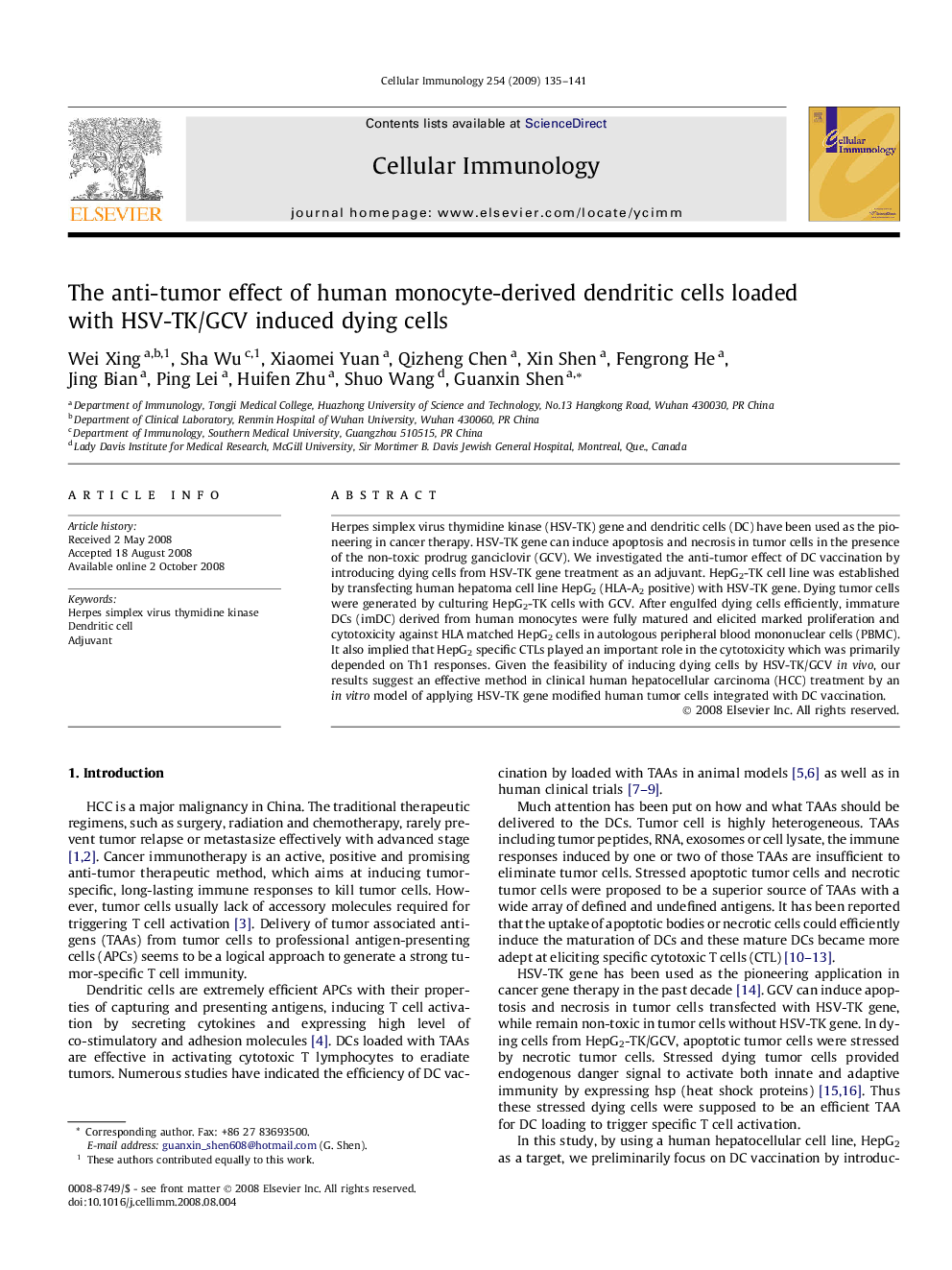| Article ID | Journal | Published Year | Pages | File Type |
|---|---|---|---|---|
| 2167942 | Cellular Immunology | 2009 | 7 Pages |
Herpes simplex virus thymidine kinase (HSV-TK) gene and dendritic cells (DC) have been used as the pioneering in cancer therapy. HSV-TK gene can induce apoptosis and necrosis in tumor cells in the presence of the non-toxic prodrug ganciclovir (GCV). We investigated the anti-tumor effect of DC vaccination by introducing dying cells from HSV-TK gene treatment as an adjuvant. HepG2-TK cell line was established by transfecting human hepatoma cell line HepG2 (HLA-A2 positive) with HSV-TK gene. Dying tumor cells were generated by culturing HepG2-TK cells with GCV. After engulfed dying cells efficiently, immature DCs (imDC) derived from human monocytes were fully matured and elicited marked proliferation and cytotoxicity against HLA matched HepG2 cells in autologous peripheral blood mononuclear cells (PBMC). It also implied that HepG2 specific CTLs played an important role in the cytotoxicity which was primarily depended on Th1 responses. Given the feasibility of inducing dying cells by HSV-TK/GCV in vivo, our results suggest an effective method in clinical human hepatocellular carcinoma (HCC) treatment by an in vitro model of applying HSV-TK gene modified human tumor cells integrated with DC vaccination.
